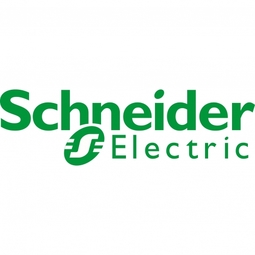Download PDF
IoT Integration in Traditional Taverns: A Case Study of Arroka Bar
Technology Category
- Actuators - Electrical Actuators
- Sensors - Electrical Conductivity Sensors
Applicable Industries
- Electrical Grids
- Equipment & Machinery
Applicable Functions
- Facility Management
Use Cases
- Cybersecurity
- Remote Control
Services
- System Integration
The Challenge
Arroka Bar, a traditional Basque tavern located in San Sebastian, Spain, is a family-run business that operates six days a week, serving breakfast, lunch, and dinner. The bar's owner, Manuel Herrero, was concerned about the potential for equipment downtime and the subsequent loss of business continuity. The unexpected loss of power could have serious financial implications for the business. Herrero needed to ensure that all refrigerators were running to keep ingredients fresh, the coffee machine was heated up 30 minutes before the first client walked in, and the bar's air conditioning and lighting were working to ensure customer comfort. He also needed to stay alert and ready to solve unexpected issues. Herrero was looking for a solution that would provide remote control of individual electrical devices, insight into the electrical network condition, and notifications in case of issues.
About The Customer
Arroka Bar is a traditional Basque tavern located in San Sebastian, Spain. The bar is run by its founder, Manuel Herrero, and his family. The bar's specialties are pinchos and tapas – regional snacks served with a glass of wine. The place offers full breakfast, lunch, and dinner menus and welcomes customers six days a week, from morning to evening. The owner's greatest concern is equipment downtime and loss of business continuity. Unexpected loss of power could have serious financial implications, so he needs to stay on top of his daily responsibilities, including ensuring all refrigerators are running, heating up the coffee machine, and keeping the bar's air conditioning and lighting working.
The Solution
Schneider Electric's EcoStruxure Facility Expert for Small Business was identified as the ideal solution for Arroka Bar. This solution is part of the EcoStruxure Power architecture, enabling monitoring and control of electrical assets from anywhere. Schneider Electric, known for its large-scale energy management projects, provided the same quality of service and support to Arroka Bar as it does to the world's largest international corporations. The company's experts advised on the best solution setup and supervised the installation process. With the EcoStruxure Facility Expert for Small Business in place, all electrical equipment at the bar is connected to an app on the owner's smartphone or tablet. The owner can easily check the statuses of individual devices and turn selected appliances on or off, on the go. The system also monitors the bar's electrical network for issues and sends notifications if a fault is detected.
Operational Impact
Quantitative Benefit
Related Case Studies.

Case Study
Smart Water Filtration Systems
Before working with Ayla Networks, Ozner was already using cloud connectivity to identify and solve water-filtration system malfunctions as well as to monitor filter cartridges for replacements.But, in June 2015, Ozner executives talked with Ayla about how the company might further improve its water systems with IoT technology. They liked what they heard from Ayla, but the executives needed to be sure that Ayla’s Agile IoT Platform provided the security and reliability Ozner required.

Case Study
IoT enabled Fleet Management with MindSphere
In view of growing competition, Gämmerler had a strong need to remain competitive via process optimization, reliability and gentle handling of printed products, even at highest press speeds. In addition, a digitalization initiative also included developing a key differentiation via data-driven services offers.

Case Study
Predictive Maintenance for Industrial Chillers
For global leaders in the industrial chiller manufacturing, reliability of the entire production process is of the utmost importance. Chillers are refrigeration systems that produce ice water to provide cooling for a process or industrial application. One of those leaders sought a way to respond to asset performance issues, even before they occur. The intelligence to guarantee maximum reliability of cooling devices is embedded (pre-alarming). A pre-alarming phase means that the cooling device still works, but symptoms may appear, telling manufacturers that a failure is likely to occur in the near future. Chillers who are not internet connected at that moment, provide little insight in this pre-alarming phase.

Case Study
Premium Appliance Producer Innovates with Internet of Everything
Sub-Zero faced the largest product launch in the company’s history:It wanted to launch 60 new products as scheduled while simultaneously opening a new “greenfield” production facility, yet still adhering to stringent quality requirements and manage issues from new supply-chain partners. A the same time, it wanted to increase staff productivity time and collaboration while reducing travel and costs.

Case Study
Integration of PLC with IoT for Bosch Rexroth
The application arises from the need to monitor and anticipate the problems of one or more machines managed by a PLC. These problems, often resulting from the accumulation over time of small discrepancies, require, when they occur, ex post technical operations maintenance.

Case Study
Robot Saves Money and Time for US Custom Molding Company
Injection Technology (Itech) is a custom molder for a variety of clients that require precision plastic parts for such products as electric meter covers, dental appliance cases and spools. With 95 employees operating 23 molding machines in a 30,000 square foot plant, Itech wanted to reduce man hours and increase efficiency.





